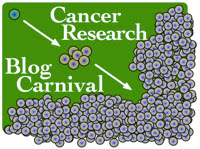 What happens when you combine two things that I love: wine and science? Well you just have to listen to our latest podcast to find out (hint: it's not pretty). But please let me elaborate on this topic... The wine industry has dramatically changed in recent years. It's been a difficult process. Once a local product, from small traditional wineries, wine producers have had to adapt to globalization. First demand for wine began to grow worldwide, as new markets opened up in Anglo-Saxon countries (Canada, United-States, Australia, UK), and increasingly more in Asia. Wine was making producing countries, mostly France, Spain and Italy, very rich, and they felt unstoppable. Then new-world wines came in and spoiled their party. The European view of wines, as having secret traditional recipes, where the soil and region is what matters most was replaced with the "Australian" way, were productivity and reproducibility of the taste were the modus operandi. We may have lost something in the way, but wine-making was ripe for some technology. The Australians perfected mass production, and figured out ingenious ways to reproducibly create tastes that would appeal to mass markets. The French as usual, were unimpressed and accused the new wines as being catered to the lowest common denominator, to lack subtle aromas and regional variability, yet they were left unable to compete. It looks like they are now ready to fight back, and reclaim their former wine-making glory. The French teamed up with the Italians to sequence the grape genome. Even the cultivar is meaningful, they chose pinot noir which is the current darling of winos out there (curse you Sideways). Even Affymetrix now has a pinot noir gene array. And what they found was interesting, by agricultural selection, genomic loci encoding taste, and smell have been amplified. This opens up the door to transgenic grapes, with new and improved flavours and pest resistance (yay, no more sulfites). Or why not skip the grape and go straight to synthetic wines. In any case, a bold step from countries which have traditionally been very anti-GMO...
What happens when you combine two things that I love: wine and science? Well you just have to listen to our latest podcast to find out (hint: it's not pretty). But please let me elaborate on this topic... The wine industry has dramatically changed in recent years. It's been a difficult process. Once a local product, from small traditional wineries, wine producers have had to adapt to globalization. First demand for wine began to grow worldwide, as new markets opened up in Anglo-Saxon countries (Canada, United-States, Australia, UK), and increasingly more in Asia. Wine was making producing countries, mostly France, Spain and Italy, very rich, and they felt unstoppable. Then new-world wines came in and spoiled their party. The European view of wines, as having secret traditional recipes, where the soil and region is what matters most was replaced with the "Australian" way, were productivity and reproducibility of the taste were the modus operandi. We may have lost something in the way, but wine-making was ripe for some technology. The Australians perfected mass production, and figured out ingenious ways to reproducibly create tastes that would appeal to mass markets. The French as usual, were unimpressed and accused the new wines as being catered to the lowest common denominator, to lack subtle aromas and regional variability, yet they were left unable to compete. It looks like they are now ready to fight back, and reclaim their former wine-making glory. The French teamed up with the Italians to sequence the grape genome. Even the cultivar is meaningful, they chose pinot noir which is the current darling of winos out there (curse you Sideways). Even Affymetrix now has a pinot noir gene array. And what they found was interesting, by agricultural selection, genomic loci encoding taste, and smell have been amplified. This opens up the door to transgenic grapes, with new and improved flavours and pest resistance (yay, no more sulfites). Or why not skip the grape and go straight to synthetic wines. In any case, a bold step from countries which have traditionally been very anti-GMO...
Monday, August 27, 2007
Wine science
 What happens when you combine two things that I love: wine and science? Well you just have to listen to our latest podcast to find out (hint: it's not pretty). But please let me elaborate on this topic... The wine industry has dramatically changed in recent years. It's been a difficult process. Once a local product, from small traditional wineries, wine producers have had to adapt to globalization. First demand for wine began to grow worldwide, as new markets opened up in Anglo-Saxon countries (Canada, United-States, Australia, UK), and increasingly more in Asia. Wine was making producing countries, mostly France, Spain and Italy, very rich, and they felt unstoppable. Then new-world wines came in and spoiled their party. The European view of wines, as having secret traditional recipes, where the soil and region is what matters most was replaced with the "Australian" way, were productivity and reproducibility of the taste were the modus operandi. We may have lost something in the way, but wine-making was ripe for some technology. The Australians perfected mass production, and figured out ingenious ways to reproducibly create tastes that would appeal to mass markets. The French as usual, were unimpressed and accused the new wines as being catered to the lowest common denominator, to lack subtle aromas and regional variability, yet they were left unable to compete. It looks like they are now ready to fight back, and reclaim their former wine-making glory. The French teamed up with the Italians to sequence the grape genome. Even the cultivar is meaningful, they chose pinot noir which is the current darling of winos out there (curse you Sideways). Even Affymetrix now has a pinot noir gene array. And what they found was interesting, by agricultural selection, genomic loci encoding taste, and smell have been amplified. This opens up the door to transgenic grapes, with new and improved flavours and pest resistance (yay, no more sulfites). Or why not skip the grape and go straight to synthetic wines. In any case, a bold step from countries which have traditionally been very anti-GMO...
What happens when you combine two things that I love: wine and science? Well you just have to listen to our latest podcast to find out (hint: it's not pretty). But please let me elaborate on this topic... The wine industry has dramatically changed in recent years. It's been a difficult process. Once a local product, from small traditional wineries, wine producers have had to adapt to globalization. First demand for wine began to grow worldwide, as new markets opened up in Anglo-Saxon countries (Canada, United-States, Australia, UK), and increasingly more in Asia. Wine was making producing countries, mostly France, Spain and Italy, very rich, and they felt unstoppable. Then new-world wines came in and spoiled their party. The European view of wines, as having secret traditional recipes, where the soil and region is what matters most was replaced with the "Australian" way, were productivity and reproducibility of the taste were the modus operandi. We may have lost something in the way, but wine-making was ripe for some technology. The Australians perfected mass production, and figured out ingenious ways to reproducibly create tastes that would appeal to mass markets. The French as usual, were unimpressed and accused the new wines as being catered to the lowest common denominator, to lack subtle aromas and regional variability, yet they were left unable to compete. It looks like they are now ready to fight back, and reclaim their former wine-making glory. The French teamed up with the Italians to sequence the grape genome. Even the cultivar is meaningful, they chose pinot noir which is the current darling of winos out there (curse you Sideways). Even Affymetrix now has a pinot noir gene array. And what they found was interesting, by agricultural selection, genomic loci encoding taste, and smell have been amplified. This opens up the door to transgenic grapes, with new and improved flavours and pest resistance (yay, no more sulfites). Or why not skip the grape and go straight to synthetic wines. In any case, a bold step from countries which have traditionally been very anti-GMO...
Posted by
Anonymous Coward
at
2:16 AM
1 comments
![]()
Labels: GMO, grape genome project, pinot noir, red wine
Subscribe to:
Post Comments (Atom)

 Podcast
Podcast




1 comments:
GMO or not, the Fran-talians will never, or at least, in my opinion, should never try to compete with new world mass-production and pricing. Certainly even genetic engineering taste and aroma genes will not help in this department either.
Europeans already know how to make quality wines that mass production will never be able to fully equal (I'm assuming, not that I've ever paid more than $10 for a bottle of wine). Hopefully they will stay focused on quality and preserve the great culture and "artisan-ship" that has evolved over the past thousand years of wine-making.
Personally I wouldn't really miss the wine, but I'd like to see us preserve the few institutions left in the world that focus on quality craftsmanship over quantity-oriented, fossil-fuel driven mass production.
It would be nice if someone still remembers how to make wine when the oil runs out, so we can all sip on Beaujolais as the human species fades into oblivion.:)
Post a Comment